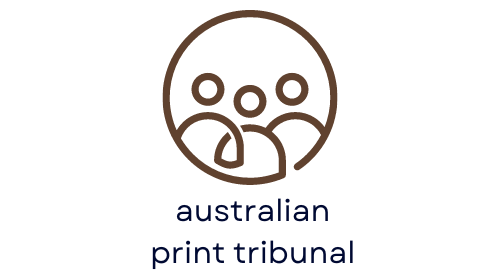For small business owners in Brisbane and across Australia, managing tax obligations means more than just submitting a tax return once a year. Tax laws, compliance requirements, and growth-oriented financial planning demand specialist knowledge that can make or break a business. Here’s where a small business tax accountant steps in – providing not only compliance support but also strategic insight for business growth. This article explains the practical role, important responsibilities, and the critical reasons for engaging an accountant like those at Motion Accounting: Small Business Tax Specialists.
Key Takeaways
- A small business tax accountant provides crucial compliance and strategic advice beyond annual tax returns.
- Engaging a specialist ensures small businesses meet obligations like GST, PAYG, superannuation, and Single Touch Payroll efficiently.
- Tax accountants help lower your tax bill with proactive planning and by recommending the most tax-effective business structures.
- Choosing an accountant familiar with your industry and using digital tools leads to clearer communication and smoother processes.
- Staying organised, sharing goals, and having regular check-ins with your small business tax accountant maximises business growth and compliance.
Understanding the Role of a Small Business Tax Accountant

A small business tax accountant acts as both an adviser and compliance manager. Their expertise extends far past simple bookkeeping or annual tax return preparation. For clients in Brisbane, such as those partnering with Brisbane Accountant Services by Motion Accounting, this role includes understanding federal and state tax obligations, working across GST, PAYG, and superannuation requirements, and interpreting changing regulations so businesses remain compliant year-round.
Specifically, a small business tax accountant:
- Identifies relevant deductions, offsets, and tax credits.
- Prepares and lodges tax returns in line with current ATO regulations.
- Maintains accurate business records, financial statements, and compliance documentation.
- Provides advice on tax-effective business structures and operations.
- Guides clients on payroll tax, fringe benefits tax, and superannuation guarantee compliance.
For Motion Accounting clients, this focus delivers peace of mind through expert compliance and tailored financial strategies.
Key Tax Responsibilities for Small Businesses

Tax obligations for small businesses in Australia cover a broad territory:
- Business Activity Statements (BAS): Lodgement and reporting for GST, PAYG instalments, and PAYG withholding.
- Income Tax Returns: Annual filings which include all business income, deductible expenses, and eligible tax offsets through Motion Accounting’s Tax Return and Advisory Solutions.
- Fringe Benefits Tax (FBT): Where applicable, calculating and reporting on benefits provided to staff.
- Superannuation: Ensuring timely super contributions for employees and keeping detailed records.
- Single Touch Payroll (STP): Real-time reporting of wages, tax, and superannuation to the ATO.
Each of these areas comes with deadlines and ever-shifting rules. Penalties for non-compliance can be significant. Engaging a dedicated small business tax accountant helps ensure these responsibilities are never overlooked. Motion Accounting’s team, for example, sets up notification systems and streamlined digital record-keeping to remove stress from these ongoing requirements.
How a Tax Accountant Adds Value Beyond Filing Returns
A tax accountant’s real value often becomes clear outside tax season. For instance, at Motion Accounting, small business clients benefit from year-round advice on cashflow structuring, investment planning, and risk management, not just last-minute compliance.
Proactive Tax Planning
Tax accountants map out strategies well in advance, such as timing asset purchases or restructuring ownership for optimal tax outcomes. These moves can lower total tax payable and improve access to credits and grants. Expert Tax and Accounting Services in Brisbane specialise in creating forward-thinking tax strategies that align with business growth objectives.
Business Structure Advice
The structure of a business, company, trust, partnership, or sole trader, impacts both tax and liability. Accountants evaluate and recommend structures that support growth, limit risk, and provide maximum tax efficiency. Chartered Accountants for Brisbane Businesses bring expertise in selecting and implementing the most advantageous business structures for their clients.
Ongoing Compliance Support
Compliance is more than a checklist. Accountants regularly review business transactions, monitor industry updates, and educate clients on upcoming regulatory changes. This avoids last-minute surprises and safeguards against fines. Firms using Motion Accounting’s Cloud-Based Financial Solutions provide real-time compliance monitoring and automated alerts for important deadlines.
Motion Accounting clients frequently see reduced tax bills, smoother audits, and more confident long-term decision-making thanks to this year-round support.
Choosing the Right Tax Accountant for Your Business
Selecting the right accountant is crucial for business health and growth. Here are key considerations:
- Qualifications: Look for certified practising accountants (CPA) or Chartered Accountants (CA) with direct small business experience.
- Industry Understanding: An accountant familiar with your sector, whether retail, professional services, or trades, provides more relevant advice.
- Communication: Clear and responsive communication is essential. Business owners need guidance they can understand, not just technical jargon.
- Technology and Systems: Ask about digital accounting platforms, cloud bookkeeping, and real-time access for business owners. At Motion Accounting, secure online portals make document sharing and status updates straightforward.
- Proactive Service: The best accountants proactively flag upcoming deadlines, opportunities, or risks before they become issues.
Brisbane’s Trusted Business Accounting Firm is known across Brisbane for a tailored approach: taking the time to understand each client’s needs and explaining complex points in plain English.
Common Tax Challenges Faced by Small Businesses
Small businesses often run into several recurring tax challenges:
- Cashflow Crunches at Tax Time: Unanticipated tax bills can impact working capital. Accountants provide forecasts and recommend reserving funds in advance.
- Record-Keeping Errors: Inaccurate or incomplete financial records can result in missed deductions or penalties. Accountants carry out systems to track all receipts and invoices properly through Professional Bookkeeping Services Brisbane – Motion Accounting.
- Understanding Entitlements: Many businesses miss out on tax credits or small business concessions simply due to lack of awareness.
- Staying Compliant: Changing tax laws and ATO updates can be hard to keep up with, especially for owners focused on daily operations. Accountants bridge this gap, Motion Accounting conducts annual compliance reviews and regular client updates.
Tackling these obstacles requires vigilance, up-to-date knowledge, and efficient systems that only a professional can reliably provide.
Tips for Working Effectively With Your Tax Accountant
Maximising results from your accountant depends on strong collaboration. Here’s how clients get the best from advisors like those at Motion Accounting:
- Stay Organised: Keep records up-to-date. Use recommended apps or digital tools to log receipts, business expenses, and bank statements throughout the year.
- Share Your Business Goals: The more your accountant knows about your growth plans, the better they can identify tax minimisation strategies and options.
- Ask Questions: No question is too basic. Good accountants welcome clear communication and take the time to explain.
- Schedule Regular Check-Ins: Don’t just connect at tax time. Quarterly or half-yearly reviews help catch issues early and refine strategies.
- Act on Advice Promptly: When your accountant recommends action, such as changing payroll setup or submitting paperwork, doing so on time avoids compliance problems.
Comprehensive Accounting and Tax Services in Brisbane champions open dialogue and ongoing education, turning financial management into a year-round support partnership, not just a once-a-year obligation.
Frequently Asked Questions about Small Business Tax Accountants
What does a small business tax accountant do?
A small business tax accountant helps with more than tax returns. They assist with compliance, identify deductions and credits, advise on business structures, manage BAS and payroll reporting, and provide ongoing financial strategy to support growth and minimise risks.
Why should I hire a small business tax accountant in Brisbane?
Hiring a small business tax accountant in Brisbane ensures your business meets local and federal tax requirements, stays updated with changing regulations, and benefits from expert advice tailored to the Australian business environment.
How can a tax accountant help with cashflow for small businesses?
A tax accountant can provide cashflow forecasts, advise on reserving funds for tax obligations, identify tax-saving opportunities, and help structure payments to avoid cash crunches at tax time.
What are the main tax responsibilities for small businesses in Australia?
Small businesses must manage Business Activity Statements, income tax returns, superannuation contributions, and payroll taxes. Accurate record keeping and timely compliance are crucial to avoid penalties.
How do I choose the right small business tax accountant?
Look for a certified professional familiar with your industry, offering clear communication, proactive service, and technology-based solutions for record-keeping and compliance.
When should I consult my small business tax accountant?
It’s best to consult your small business tax accountant regularly, not just at tax time. Quarterly or half-yearly check-ins help stay on top of obligations, refine strategies, and address changes early
